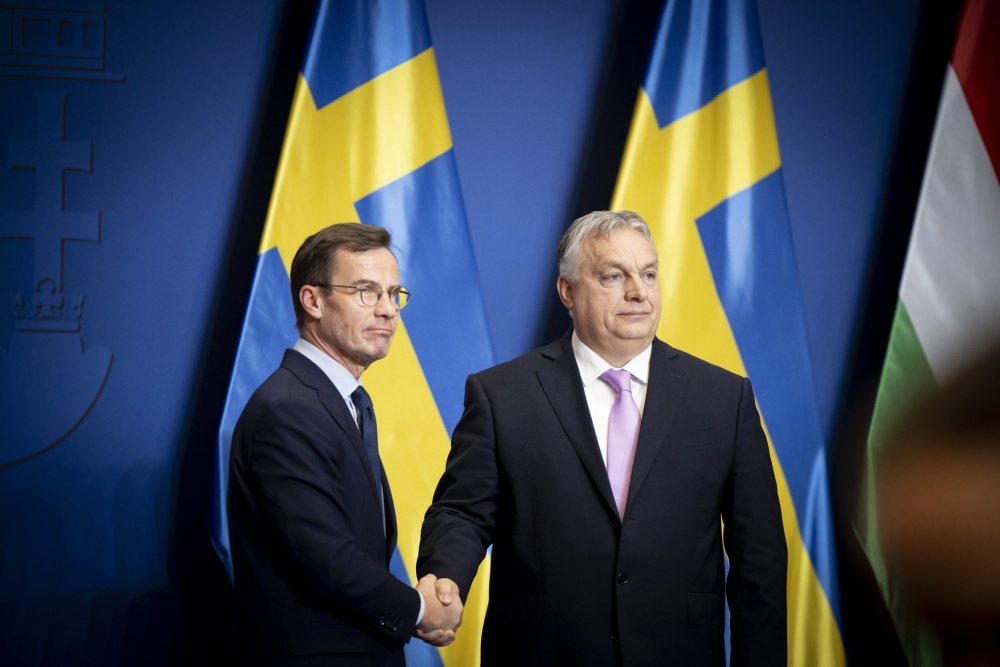
Parliament ratified the proposal on Sweden's accession with 188 votes in favor to six against.Continue reading
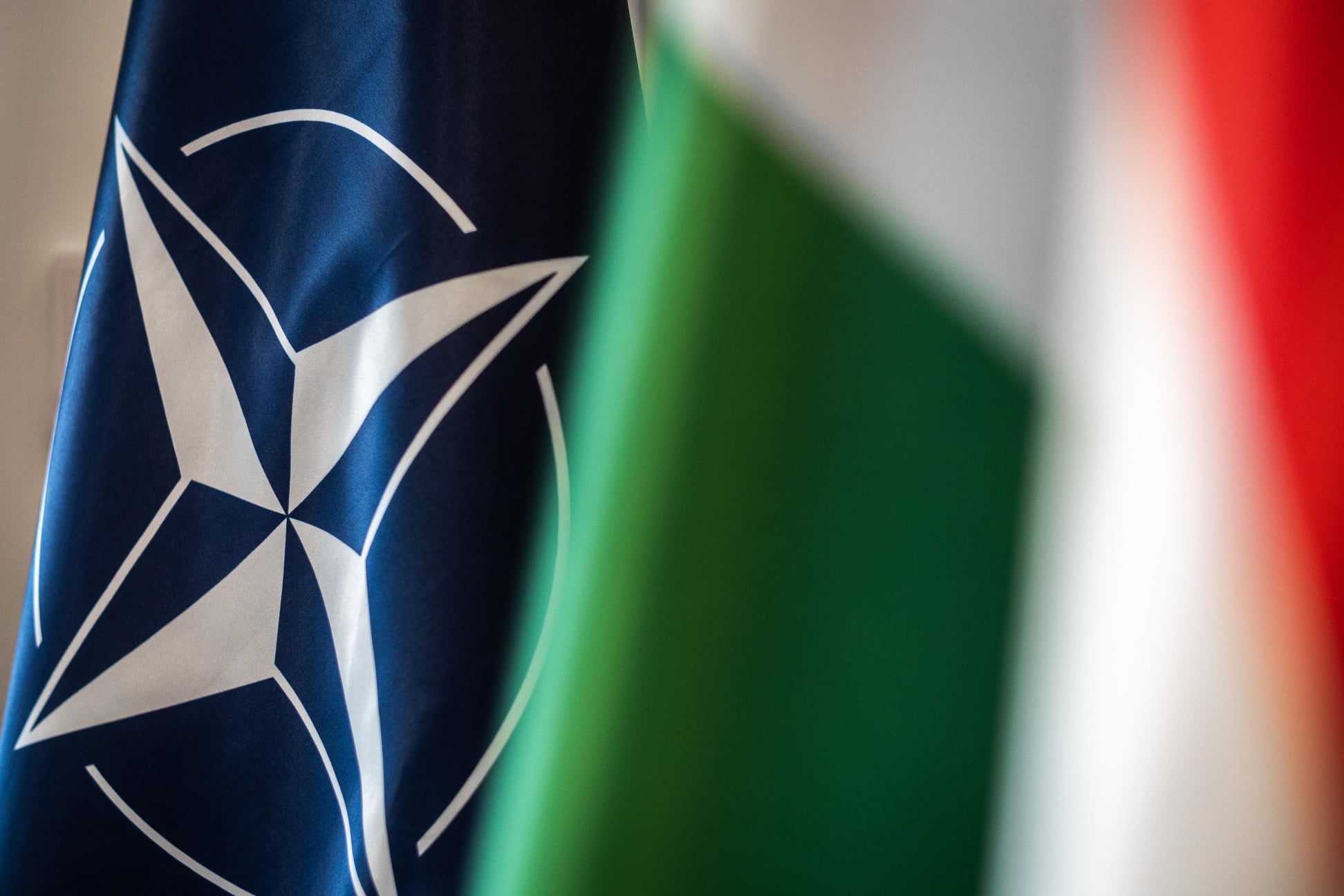
The 25th anniversary of Hungary’s accession to NATO was commemorated on Tuesday in Independence, Missouri, where Hungary, Poland, and the Czech Republic officially joined the North Atlantic Treaty Organization on March 12, 1999.
Twenty-five years ago on this day, Foreign Minister János Martonyi presented the instrument of accession to U.S. Secretary of State Madeleine Albright. The protocol was signed by the two foreign ministers at the Truman Presidential Library in the city of Independence, and Hungary’s full membership – and likewise the Polish and Czech entries – took effect.
The anniversary commemoration, held at the site of the ceremony a quarter of a century ago, was also commemorated with a roundtable discussion on Tuesday, featuring Brigadier General László Szegő, who helped to manage the accession process at the time. On the occasion, Tamás Kovács, Hungary’s Consul General in Chicago, highlighted that
in today’s conflict-ridden times, during the war in Ukraine, it is clear that the launch of the Hungarian military industrial development program was a good decision.
On the occasion of the anniversary of the accession of the Czech Republic to NATO, a security conference was held in Prague on Tuesday, where Bill Clinton said that the admission of the Czech Republic, Poland, and Hungary to NATO was a good step. “It was a risky decision, not everyone supported it,” the former U.S. President said in his speech. He added that time had shown that “it was a good investment that strengthened NATO.” He underlined that the security of democratic countries is not a one-off, it must be worked for and defended.
Dnešní slavnostní večer na @USEmbassyPrague k příležitosti 25. výročí vstupu ČR do NATO. @BillClinton @prezidentpavel @bijan pic.twitter.com/kGHqScapAn
— Lukas Biba (@bibalukas) March 11, 2024
The Czech Republic, Poland, and Hungary deserve to live in freedom,”
he stressed.
On the occasion of the 25th anniversary of Hungary’s membership and the 75th anniversary of the founding of the defense organization, an event entitled “NATO 75 – Hungary 25: together for the security of the Euro-Atlantic area,” was held in the Hungarian Parliament. Zsolt Németh, Deputy Head of the Hungarian Delegation to the NATO Parliamentary Assembly, said at the event that a strong NATO is in the vital interests of the Hungarian nation.
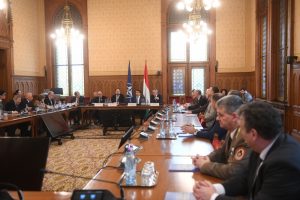
Photo: MTI/Kovács Attila
The politician also pointed out that the Russian attack on Ukraine is nowadays used to justify the need for a strong NATO, but that is not the only reason. He also expressed the view that
NATO’s defense strength can make the world a better place if its leaders use it wisely.”
“This world is much better than the world of the Cold War,” said Németh, noting that “this is why we oppose any tendency towards a return to pre-1991 conditions.”
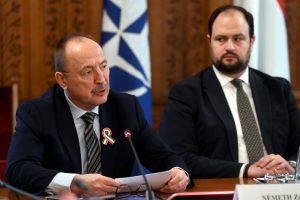
Zsolt Németh, Deputy Head of the Hungarian Delegation to the NATO Parliamentary Assembly (L) and Lőrinc Nacsa, Head of the Hungarian Delegation to the NATO Parliamentary Assembly (R). Photo: MTI/Kovács Attila
The politician highlighted that NATO also stands on the basis of the UN Charter, which has four main pillars: international peace and security, the global common good, the protection of human rights, and the sovereign equality of nations. He added that NATO is an area in which the values of the UN Charter can be applied with particular security, as it is guarded by the military power of the organization.
On the same day, an event was also held in Tata to mark the anniversaries, where Minister of Defense Kristóf Szalay-Bobrovniczky gave a speech. He stressed that NATO is the guarantee of security for the lives and property of the Hungarian people, alongside and above the Hungarian army. He pointed out that a lot has happened in the past 25 years, but especially the past two years show that NATO is working. “The organization is a credible deterrent force that can deter any challenger to the alliance with its action, and this is very important for Hungary,” he noted.
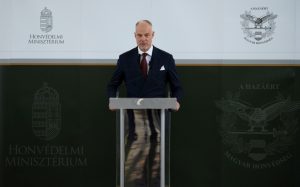
Kristóf Szalay-Bobrovniczky. Photo: MTI/Bodnár Boglárka
The Minister pointed out Hungary is a recognized and respected member of NATO. This is because the government is doing its utmost to ensure that the country “does not take out, but takes in, in terms of financial and military capabilities,” he said. Szalay-Bobrovniczky noted that
Hungary, in line with the alliance’s expectations, spent two percent of its GDP on its defense budget last year. More than 20 percent of this money was spent on force development, also exceeding NATO’s expectations,
he said.
He added that Hungary is active in international cooperation and its missionary activity is also significant: it participates in the largest land peacekeeping mission as a member of KFOR, and provides air defense for the Baltic States, Slovenia, and temporarily, for Slovakia.
Prior to the ceremony, a dynamic combat vehicle demonstration and live-fire exercises were held at the firing range in Szomód (near Tata) by the Hungarian-led NATO contingent, which also included Italian and Croatian soldiers.
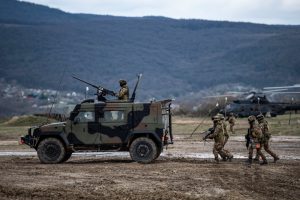
Gidrán combat vehicle during the military training in Szomód. Photo: MTI/Bodnár Boglárka
The demonstration included the most modern combat vehicles of the Hungarian Defense Forces, the Gidrán combat vehicles, a SAAB Gripen fighter aircraft, and several Leopard 2A7HU third generation combat vehicles.
Via MTI, Featured image: Facebook/Szijjártó Péter